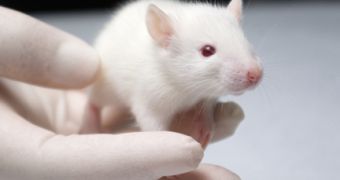Obesity and type 2 diabetes are health issues currently affecting thousands of people worldwide. By the looks of it, these two conditions could one day be treated with the help of so-called good gut bacteria.
A team of researchers writing in this week's issue of the journal Proceedings of the National Academy of Sciences detail how, after feeding several obese mice with a bacterium known as Akkermansia muciniphila, the animals managed to lose significant amounts of weight.
According to Nature, said bacterium is commonly found inside the guts of all mammalians. More precisely, it makes up about 3-5% of the gut's microbial flora.
Interestingly enough, it appears that both overweight people and the obese mice taken into consideration for this research have lower levels of this bacterium than normal weight individuals do.
When fed a combination of live A. muciniphila and prebiotic foods (i.e. foods that stimulate the growth of bacteria inside the gut), the obese laboratory mice experienced a noteworthy improvement in their overall health condition.
Thus, not only did they lose weight, but their ratio of fat to body mass also got better.
Furthermore, the bacterium appeared to have helped reduce their insulin resistance and allowed their intestinal mucus to grow thicker.
“This study demonstrated that the abundance of A. muciniphila decreased in obese and type 2 diabetic mice,” the researchers write in their paper.
“We also observed that prebiotic feeding normalized A. muciniphila abundance, which correlated with an improved metabolic profile,” they go on to argue.
The same source informs us that increased levels of the Akkermansia muciniphila inside the gut yield said health benefits as a result of its boosting the number of specific signaling molecules that help keep blood-glucose levels and harmful microbes well under control.
It is the researcher's hope that at some point in the not so distant future, the findings of this research will translate into the development of new treatments for obesity and type 2 diabetes.

 14 DAY TRIAL //
14 DAY TRIAL //